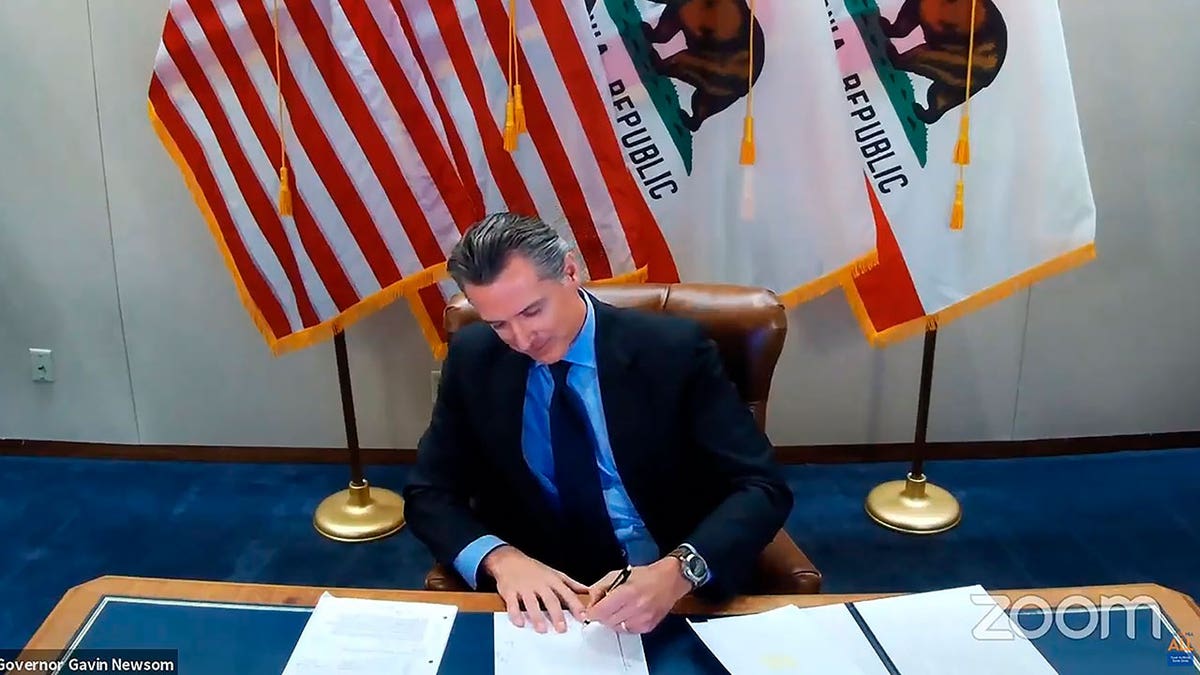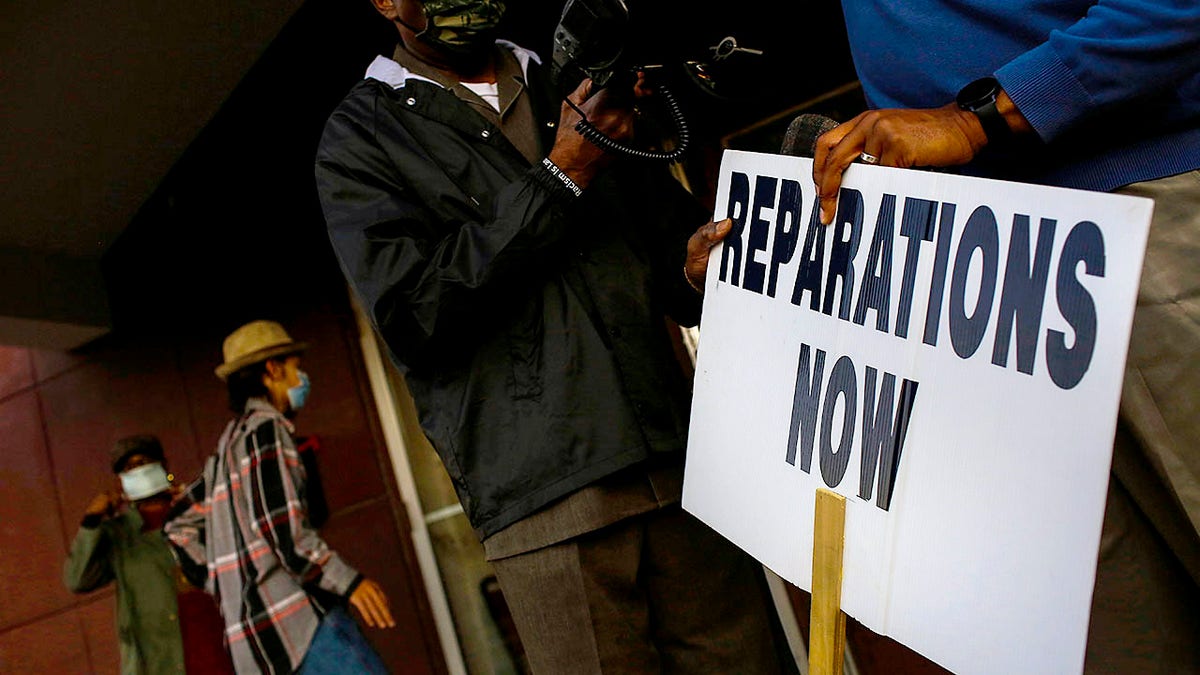Obama says reparations 'justified' on podcast with Bruce Springsteen
Former NFL star Herschel Walker and civil right lawyer Leo Terrell weigh in on 'Hannity'
A California task force on reparations – the first of its kind in the nation – is set to release a report on Wednesday outlining several ways to address what it believes to be wrongs committed by the state against Black Americans.
The report calls for expanded voter registration, policies to hold police more accountable in cases of alleged brutality, and recommends the creation of a special office that would, in part, help Black Americans who descended from free or enslaved Black people in the country at the end of the 19th century document their eligibility for financial restitution.
The report, which runs 500 pages, will be the first government-commissioned study on harms against the African American community since the 1968 Kerner Commission report ordered by President Lyndon Johnson, task force Chair Kamilah Moore said.
"I hope that this report is used not only as an educational tool, but an organizing tool for people not only in California but across the U.S. to educate their communities," she said, adding that the report also highlights "contributions of the African American community and how they made the United States what it is despite ongoing oppression and degradation."
BLACK REPARATIONS PANEL COULD DECIDE WHO GETS COMPENSATION

California Gov. Gavin Newsom signs a bill establishing a task force to come up with recommendations on how to give reparations to Black Americans. (AP)
California’s Democratic Gov. Gavin Newsom created the task force via signed legislation in 2020 which voted in March to limit potential reparations to descendants of free or enslaved Black people in the country at the end of the 19th century rather than all Black people as many reparations advocates have pushed for.
Moore said that a state Office of African American or American Freedmen Affairs could help African American residents file claims and trace their lineage to prove eligibility for individual restitution.
UNIVERSITY OF CHICAGO STUDENTS DEMAND SCHOOL GIVE $1 BILLION IN REPARATIONS TO SOUTH SIDE

Vernon AME Church Pastor Robert Turner holds a "Reparations now" sign after leading a protest from City Hall. (Joshua Lott/The Washington Post via Getty Images)
The report, to be released by the state Department of Justice, does not provide a comprehensive reparations plan, which is due to lawmakers next year.
The report is expected to lay out how California supported slavery before it was technically abolished and oppressed Black residents through what it says are discriminatory laws and practices in education, home ownership, employment and the courts.
The task force in its draft report also recommends compensating people who were forced out of their homes for construction projects such as parks and highways and general renewal.

California Gov. Gavin Newsom makes an appearance in Sacramento after the polls close on the recall election, Sept. 14, 2021. (Reuters/Fred Greaves)
EVANSTON, ILLINOIS FIRST IN US TO PAY REPARATIONS TO BLACK RESIDENTS
"Once again, California is leading the nation, in a bipartisan way, on issues of racial justice and equity, which is a long overdue discussion, we must have – not just in a single state, but across America," a spokesperson for Newsom's office told Fox News Digital in a statement. "As this report is lengthy in substance, the administration is still reviewing this document. We also look forward to reviewing the second report which is due next year."
The report states that it recommends the implementation of a "comprehensive reparations scheme."
A federal slavery reparations bill, commonly referred to as H.R. 40, has languished in Congress since it was first introduced in 1989. It passed out of the House Judiciary Committee in 2021 but most believe it is unlikely to progress further.
Texas Democrat Rep. Shelia Jackson Lee, who introduced the Commission to Study and Develop Reparation Proposals for African Americans Act in the House, called the legislation "long overdue."
CLICK HERE TO GET THE FOX NEWS APP
Several Republicans across the country, including Utah Congressman Burgess Owens have pushed back against plans for reparations.
"It is impractical and a non-starter for the United States to pay reparations," Owens, a Black man whose great-great-grandfather was a slave, said last year. "It is also unfair and heartless to give Black Americans the hope that this is a reality. The reality is that Black American history is not one of a hapless, hopeless race oppressed by a more powerful white race. It is instead a history of millions of middle- and wealthy-class Black Americans throughout the early 20th century achieving their American dream."











































